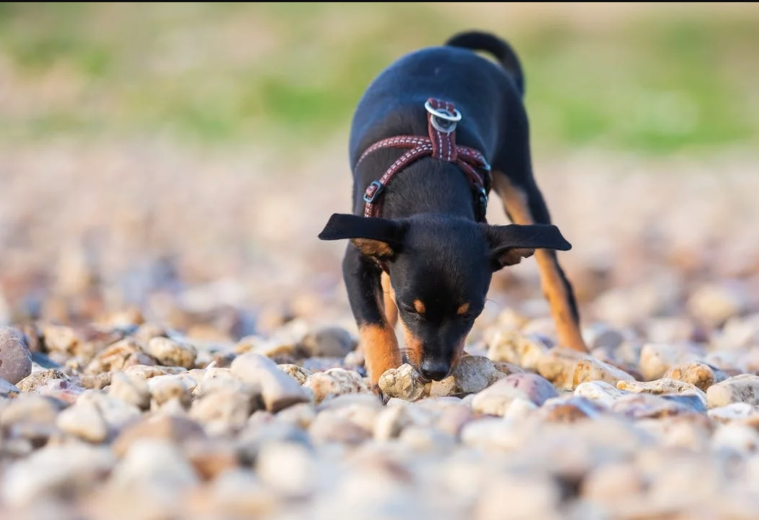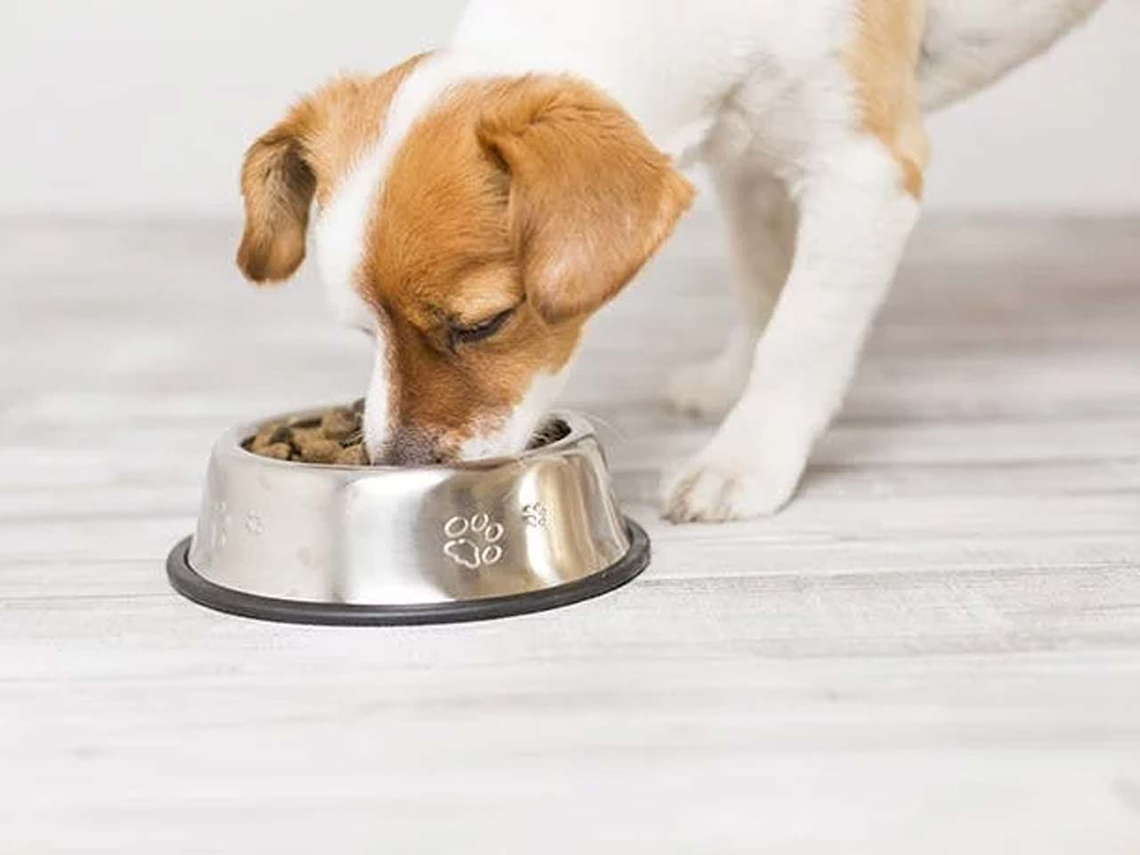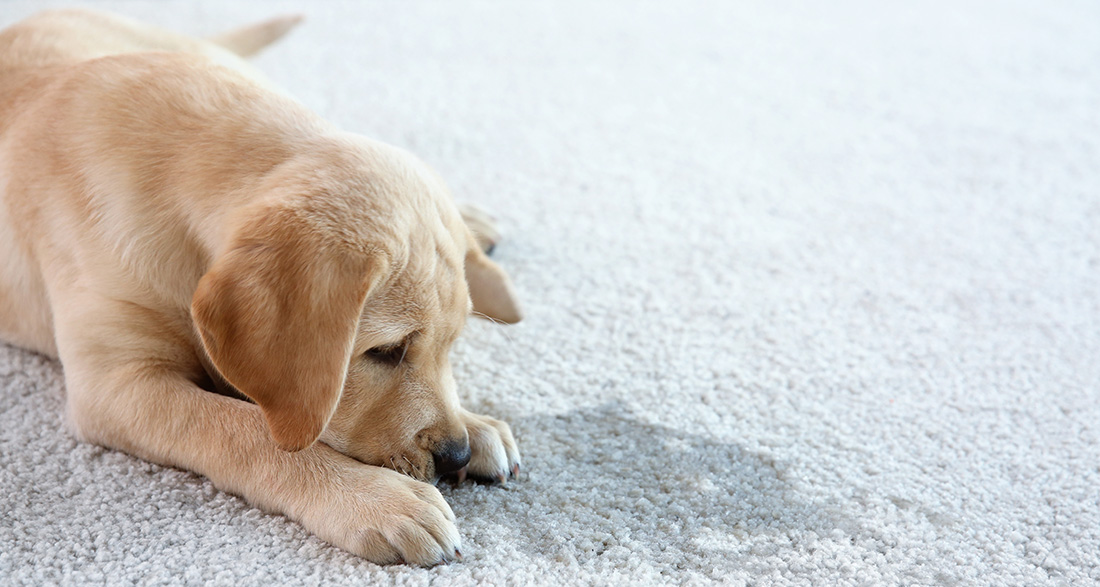A puppy is coming home! One of the first things it needs to learn is how to become house-trained. We provide helpful tips on how to get your puppy house-trained, what to consider, and what to do if a little accident occurs. With a bit of patience and a regular daily routine, you can support your puppy on its journey to becoming house-trained.
- The first steps to house-training
- How often should you take your puppy outside?
- How long does it take to house-train a dog?
- 5 Tips on How to House-Train Your Puppy
- How to house-train puppies at night?
- What to do if your puppy has an accident in the apartment?
- Your puppy is not becoming house-trained – what now?
The first steps to house-training
House-training is an innate, natural behavior. In the first weeks, the mother dog ensures the cleanliness of the puppies and hygiene in the whelping box. When the little ones start to venture out, they usually automatically begin to do their business outside their sleeping area. A puppy coming into the house is often not yet reliably house-trained. It must learn to fully control its bladder and bowels.
Puppies first need to learn that they are not allowed to relieve themselves in the house. Therefore, house-training should start right after the puppy arrives. A puppy needs regular opportunities to do its business outdoors in a calm environment. A few accidents in the house may happen at the beginning, and the journey to house-training will take some time and patience.
How often should you take your puppy outside?
A small dog needs to go outside regularly every two to three hours during the day, immediately after waking up and eating, and before going to sleep. After an exciting play session, a walk outside is also advisable. Our tip: Evening rituals help prepare the puppy for the upcoming night. Feed your puppy at the same time each day and take it for a short walk just before bedtime.
How long does it take to house-train a dog?
It can take several weeks or even months to house-train your puppy. Each puppy is individual—some quickly understand where and when they are allowed to relieve themselves, while others may need more time. Since dogs can only control their bladder and bowel muscles from the 14th to 17th week of life, it may take a few weeks for your puppy to become house-trained.
Observe your puppy: Puppies also give signals when they need to go. Some become restless, start sniffing the ground, whine, or spin around in circles. Some dogs simply sit quietly by the door or discreetly move to a seemingly quiet corner. Over time, you will discover how your dog signals its need to go.

5 Tips on How to House-Train Your Puppy
1. Be attentive:
Attention is crucial on the journey to house-training. Over time, you will develop a sense of when your puppy needs to relieve itself. When the time comes, take it outside as quickly as possible but without haste so that it can do its business. Afterward, praise the little four-legged friend abundantly.
Possible signs that your puppy needs to go:
- Restlessness
- Heading to the door
- Searching for a quiet corner
- Whining
- Spinning around in excitement
- Increased sniffing
2. Stick to a schedule:
Especially for a young dog, a structured daily routine with fixed times for various activities is essential. The puppy can orient itself to these times. Definitely plan a walk outside after waking up, eating, and before bedtime. Initially, take your dog outside every two hours during the day, and from the third month of life, every three to four hours so that it can relieve itself. Do not end the walk until the dog has done its business.
3. Choose a quiet, fixed spot:
It may help to always go to the same place where the dog can do its business. Over time, it learns that this specific place is its “dog toilet.” This gives the little four-legged friend security. Its own scent tells it, “I’ve done it here before, and nothing happened to me.” Outside is all new, exciting, and stimulating.
A puppy often feels a little insecure outside the house since it has left the protection of its “den.” So, the process may take some time, or the puppy may even forget that it needed to do its business. Therefore, take your time when going for a walk.
4. Accidents happen – don’t scold:
Puppies do not have complete control over their bladder in the first weeks of life. If a mishap occurs in the apartment, scolding or punishing is entirely wrong. In response, the little dog might retreat to an unobserved corner to do its business, avoiding possible punishment for fulfilling its natural need. In the worst case, the four-legged youngster may no longer dare to relieve itself in front of you, even when you are outside with it.
5. Praise your four-legged friend:
If your puppy does its business outside, praise it profusely. After that, spend some time with it outside, engage in a small play session, or take a short walk. This way, the young one associates the walk with a positive experience.

How to house-train puppies at night?
Initially, it may be necessary to maintain the same walking rhythm as during the day at night—meaning, you should take your puppy outside every two to three hours so that it can relieve itself. As the dog gets older, the intervals between night walks will become longer.
For the night, it can be useful to place the puppy in a dog crate within earshot of your own bed. This serves not only as a protective cave for the little one but also allows it to signal when it needs to go outside. Since it naturally does not want to make its sleeping place dirty, it will notify you promptly when it needs to go out. This way, it learns to announce when it’s time for an outdoor walk.
What to do if your puppy has an accident in the apartment?
Make sure to stick to the walking intervals. It’s better to go outside one more time than one time too few. Reconsider the place you have offered your dog as its “dog toilet”: Does the puppy have enough peace there for its business? Is the ground comfortable for its delicate paws? Have too many other dogs left their mark in the same spot, or are there other distracting factors preventing the little one from doing its business?
If a small “accident” really happens, do not scold the puppy. Clean the spot with a mild but still fragrant and harmless cleaning agent for the puppy’s health to cover the smell. This should prevent the puppy from doing its business again in the same spot.
Your puppy is not becoming house-trained – what now?
If your puppy is not house-trained even after several months, a visit to the veterinarian is advisable. Organ diseases or food intolerances that trigger diarrhea, for example, need to be ruled out. Inappropriateness can also have psychological causes: Dogs experiencing too much stress or discomfort in their environment may tend to constantly mark their territory. In any case, consult with your dog trainer.
How do you know when your puppy is house-trained?
When the puppy no longer goes inside the apartment, a milestone has been reached. In the future, your dog will signal its need to go outside by whining or heading to the door, indicating that it wants to do its business.
Getting an Adult Dog House-Trained:
What to do if an adult dog suddenly becomes unclean again? It can happen that a house-trained dog suddenly starts doing its business in the apartment. These can be symptoms of an illness, such as a bladder infection or digestive problems. In such a case, it is best to consult a veterinarian.


